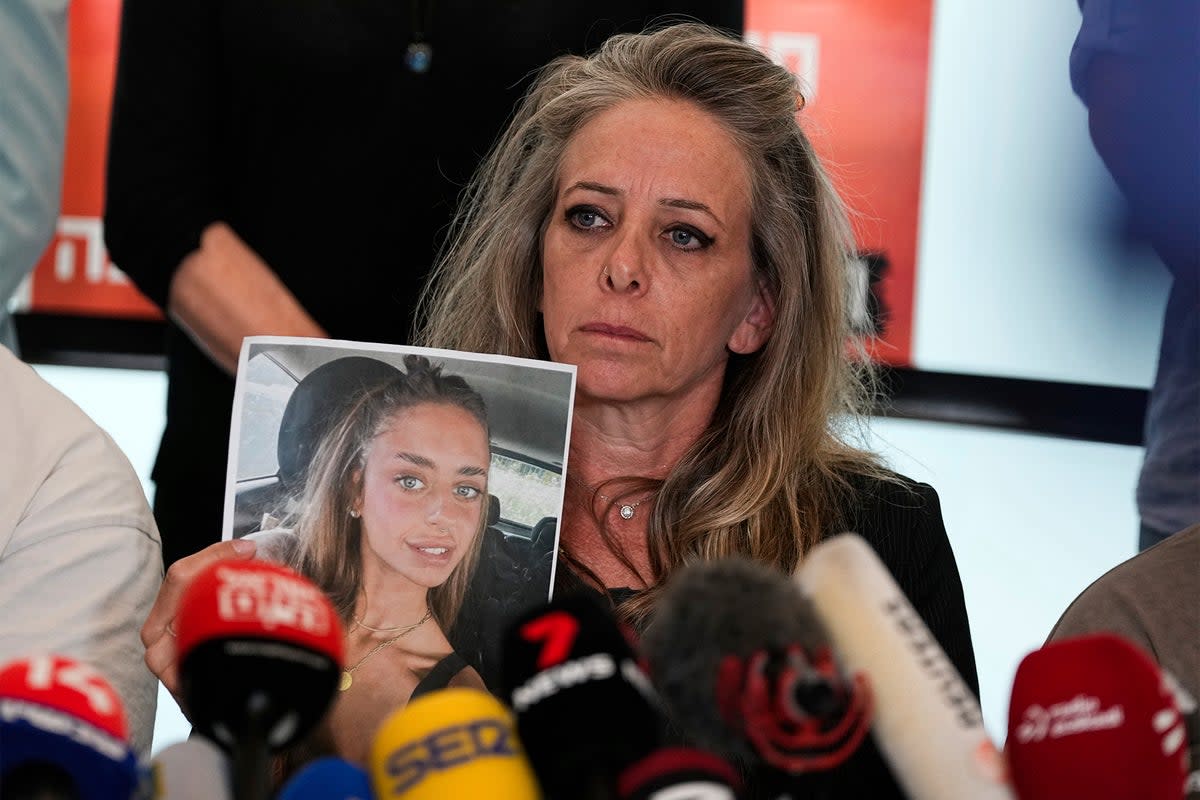Voices: Should we negotiate with terrorists? Never – with a single exception

Donald Trump got into a lot of trouble the other day, and rightly, for calling Hezbollah and other Islamist terrorists “very smart”. As ever, he could have chosen his words more carefully, but he had a point.
In the perverse cowardly world of the professional terrorist, these Iranian-backed and trained groups know how to shock and how to wring the maximum emotional harm from their victims. They are expert propagandists, and liars. They are adept at creating fake news and “false flag” incidents. They know how to project themselves across global media. Hamas pretend that their prisoners are “guests” who would be released “when circumstances allow”. They do not mention how their families were slaughtered in front of them.
We know now that one British teenager – named Yahel, 13 (her surname is being withheld) – who went missing after Hamas’s attack on southern Israel, was murdered. Her British-born mother Lianne was also murdered in the raid, and Yahel’s sister Noiya, 16, and Israeli father Eli are still missing.
Hamas are not gentle, generous hosts seeking the best for their fellow human beings. They are cynical monsters, and in their public statements they do not disclose that they think nothing of disposing of their captives. They are there to be used.
And so the hostage videos begin…
The thing about hostage videos is that for all their captors’ efforts to make out that they are being well treated, the desperation in their eyes always shows through the clumsy propagandist scripts. We cannot know what they’re thinking, except that they are frightened. So it is with the first of the latest Hamas videos.
A young woman, whose injured arm is shown being treated by an unidentified medical worker, identifies herself as 21-year-old Mia Schem and pleads to be returned to her family as quickly as possible. The power of one individual in such a plight can exceed any number of statistics about civilians who’ve died in bombings or being forced out of their homes. It is someone looking directly at you for help, and the normal human response is to want to find a way to help.
It’s a temptation that leaders should steel themselves against. Cauterising one’s feelings in this way is itself painful, and it’s difficult to tell families and people the truth about hostage-taking, but that truth is eternal: you cannot bargain with terrorists.
Offering concessions to hostage takers merely encourages them to take more hostages, because they become “currency”, useful bargaining chips for their campaign. When one ransom is paid – a prisoner exchange, money or other concessions – then the value, ie the price, of a hostage is set. They naturally become a media focus in the way that the routine victims of war do not, and the public pressure to negotiate is often impossible to resist.
It rests on a fallacy that there may be some humanitarian act that does no harm but can yet secure the return of someone with perhaps their whole life ahead of them. But then the terrorists come back for more. In the Middle East, it has been commonplace – think of the American embassy staff in Tehran detained at the pleasure of the ayatollahs, or Terry Waite, basically chained to a radiator in Lebanon for years. Large groups of foreign nationals were used by Saddam Hussein in an attempt to avert attacks in the first Gulf war.
Certainly, intermediaries and envoys, semi-official, such as Waite was himself, can go and beg the terrorists and the dictators to let people go for humanitarian reasons, or for trivial concessions; but any serious trading over strategic interests must be counterproductive, and the long history of hostage taking shows this to be so.
Arguably, the UK ought not to have been perceived to have unfrozen monies owed to Iran in exchange for the return of Nazanin Zaghari-Radcliffe. Her case, and that of her fellow captors, highlights just how powerful public opinion can be in a democracy, and how it can force thez hand of governments.
In the end, her release was an elegant manoeuvre, because the monies were plainly owed to the government of Iran – but there must be a nagging doubt about the lessons that Tehran and its allies draw from such exercises. Of course, for Hamas, “public opinion” is not a concept that they recognise in their own domain, despite their acute understanding of how it works in free societies.
As more hostage videos are gradually released, they will add to the pressures on Western leaders and, in turn, on Israel. They will make us weep and, if things go as badly as they might, they may horrify and terrify us, too.
The mainstream media has chosen not to show them in any detail, but there existence is known, and freely available online. The modern terrorist – Islamic State being the grotesque pioneers – also understands the power of largely unpoliced social media, and so footage of the captives gains a rapid and wide circulation, and one that sometimes can exaggerate support for the likes of Hamas. It’s offensive and it erodes our morale, but there seems no real possibility of taking this stuff down.
New techniques, then, but the eternal truth remains: terrorists are not people you should do business with – with the single exception that it is OK to talk if they seek peace. That is not the case with Hamas, which is less a “resistance” movement, more an army set upon a war of aggression against its neighbour – an evil mission to kill Jews and destroy the state of Israel.
The hostage videos, quite deliberately, are there to distract us from that essential, foundational truth about the conflict. We cannot afford to encourage them. How many more hostages do we want Hamas to kidnap in the coming weeks?

